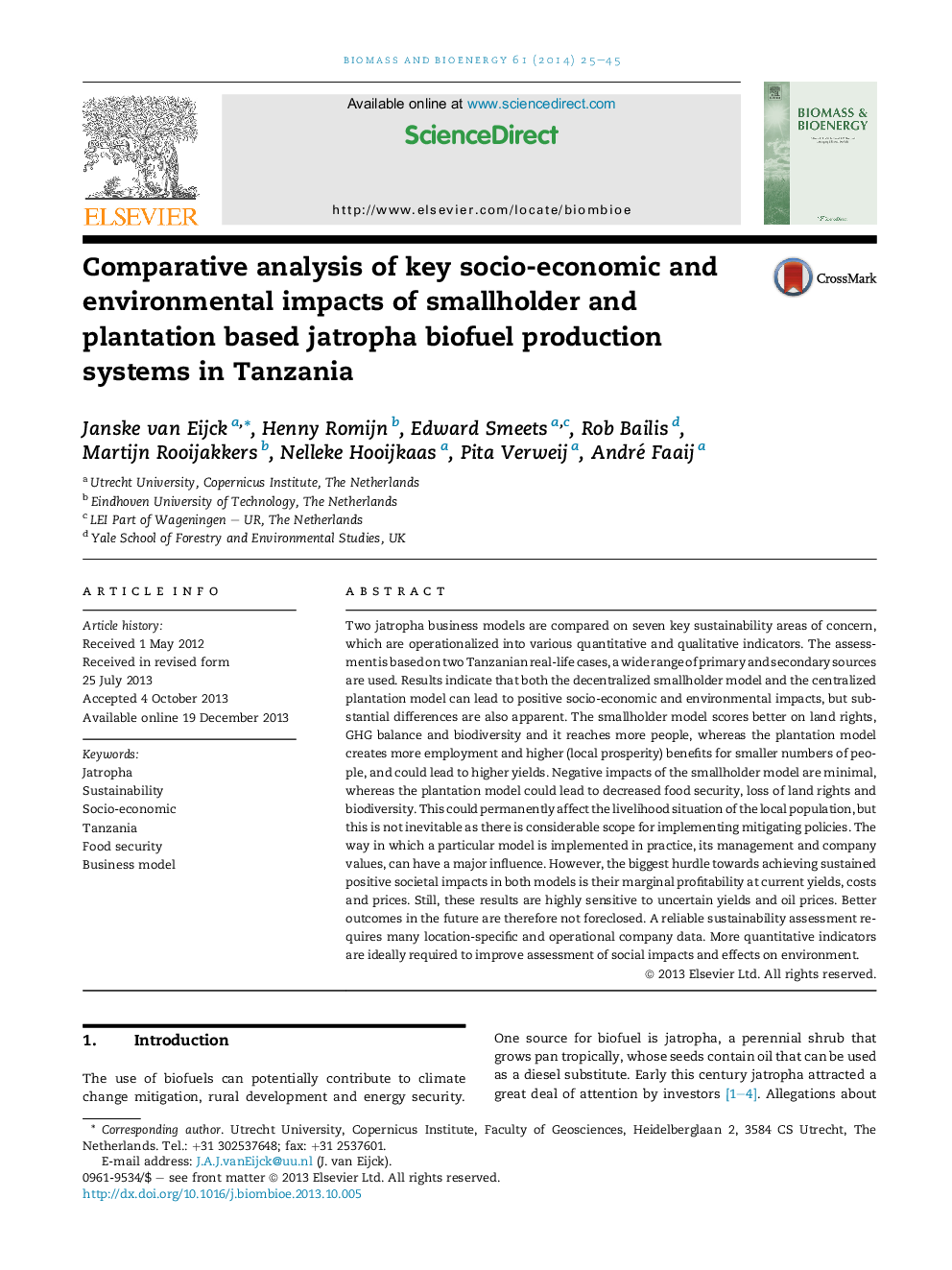| کد مقاله | کد نشریه | سال انتشار | مقاله انگلیسی | نسخه تمام متن |
|---|---|---|---|---|
| 676943 | 1459832 | 2014 | 21 صفحه PDF | دانلود رایگان |
• We compare a smallholder model and plantation model for jatropha cultivation.
• 7 Key socio economic and environmental areas of concern are investigated.
• Both models have positive impacts depending on practical implementation.
• Measures can be implemented to minimize negative impacts.
• Smallholder model shows less risks on negative impacts than the plantation model.
Two jatropha business models are compared on seven key sustainability areas of concern, which are operationalized into various quantitative and qualitative indicators. The assessment is based on two Tanzanian real-life cases, a wide range of primary and secondary sources are used. Results indicate that both the decentralized smallholder model and the centralized plantation model can lead to positive socio-economic and environmental impacts, but substantial differences are also apparent. The smallholder model scores better on land rights, GHG balance and biodiversity and it reaches more people, whereas the plantation model creates more employment and higher (local prosperity) benefits for smaller numbers of people, and could lead to higher yields. Negative impacts of the smallholder model are minimal, whereas the plantation model could lead to decreased food security, loss of land rights and biodiversity. This could permanently affect the livelihood situation of the local population, but this is not inevitable as there is considerable scope for implementing mitigating policies. The way in which a particular model is implemented in practice, its management and company values, can have a major influence. However, the biggest hurdle towards achieving sustained positive societal impacts in both models is their marginal profitability at current yields, costs and prices. Still, these results are highly sensitive to uncertain yields and oil prices. Better outcomes in the future are therefore not foreclosed. A reliable sustainability assessment requires many location-specific and operational company data. More quantitative indicators are ideally required to improve assessment of social impacts and effects on environment.
Journal: Biomass and Bioenergy - Volume 61, February 2014, Pages 25–45
